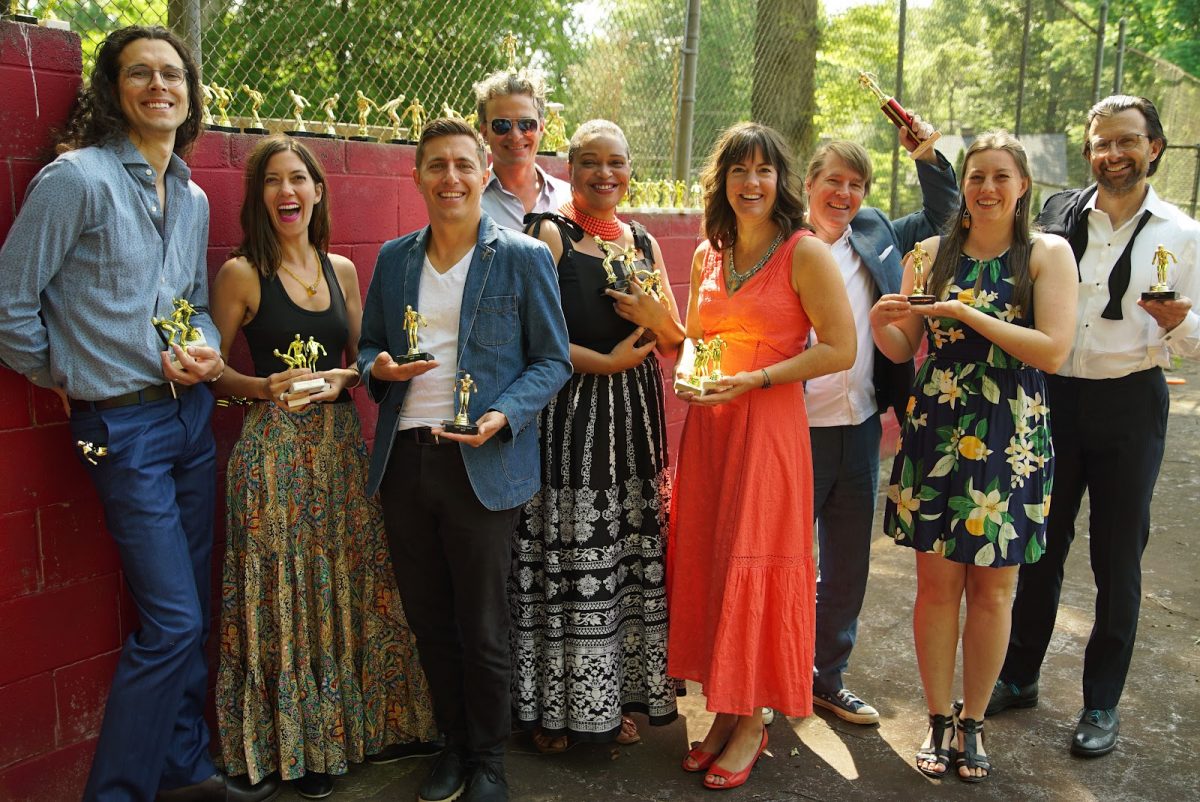Gene Osborn is keenly aware that he is “walking a fine line” between his day job and night life. After performing with his band We Are Star Children in the evenings, the longtime Charlottesville educator shifts gears before morning to serve as Red Hill Elementary School’s assistant principal.
“There is a tension between having a fun and wild rock band … and being with preschoolers through fifth graders all day,” Osborn says. “I love the tension.”
Fans of WASC know tension. When the band unveils Spitfire, its new eight-track album, in January 2024—maybe on January 1 or timed with a release party on January 20, Osborn isn’t yet sure—it will be the first release listeners have heard from the group in almost a decade.
Osborn has fronted WASC since 2010, when the band released its first EP, Love to the Wicked. (The group released one other EP under the name Straight Punch to the Crotch.) In 2014, Osborn and what was then a seven-piece band, released its first full-length record, and the frontman reflected at the time that “the material [had] migrated so far away” from the goofy original name.
At that moment, WASC seemed ascendant. Playing at the Jefferson and Southern and headlining Fridays After Five, the septet was one of the most polished outfits in town. Dubbing themselves “adventure pop,” they were Charlottesville’s answer to the likes of MGMT. Regional, and maybe national, acclaim seemed imminent.
Then? Almost radio silence. No new albums for two years, four years, eight years—an eternity in the world of pop music, and a death knell for any band whose ambitions are big-time stardom.
But Osborn brushes off such talk. Those were never WASC’s ambitions anyway, he says.
“We Are Star Children grows incredibly slowly and deliberately, mostly because we are a collection of mothers and fathers and business owners and teachers,” he says.
WASC gathers for a few hours every Monday for its residency at Fry’s Spring Beach Club, Osborn goes on to say. And “it’s within that wonderful window of time that we will develop a new song or work on some old material or do some band management.”
Although the group has seen considerable changes away from the studio and stage over the last 10 years—a few new careers and multiple new dependents—WASC has made precious few internal tweaks. The band’s added two new full-time members, but the other seven players have remained the same, and WASC continues to book just four to five shows per year.
According to Osborn, never feeling like they have to pay their bills with music is key to WASC’s members staying together and on the same wavelength.
“It’s a passion project. We can really choose those wonderful gigs,” Osborn says. “I believe the universe sends us signals and points us toward what it needs of us. I keep getting pointed back to my work in schools and with families, but the band has also really enriched my work. The universe has never asked us to be anything other than that which we are.”
As for its new album, WASC has released two tracks in advance of next year’s full release. Spitfire’s first song, “Fairy King,” adds a western twang to WASC’s classic psych-pop approach; the effect is something in the vein of Calexico, Midlake, or Iron and Wine. The second release, “Landline,” is another divergence altogether: a playful exploration of phone sex that evolves into a full-on sea shanty.
“It has always been a very difficult question for us—who do we sound like?” Osborn says. “It’s really tricky, because the album has such range. It’s not really a shtick, like having each song be a different genre. It’s far more organic, having songs that each relay a different feeling.”
Osborn says a third Spitfire single is coming on November 1. And though he won’t specify which tune it will be, it likely won’t be the title track, something he wrote as a letter to Trayvon Martin’s mother in the wake of her son’s murder. Another genre-defying effort, the song has been a labor of love, Osborn says, and the final product will include accompaniment by a full choir.
As for his ambitions—for WASC and beyond—Osborn says the universe once again has shown him the way.
“Ever since I was a kid, I wanted to be in educational leadership. I wanted my own school—that has been my main driving force,” he says. “I serve a wide range of families, and there are families who are fans of the band, and some that have very strong opinions. But when I close my eyes and reflect on the life I have built, the tension between service to art and service to children makes my life full.”
